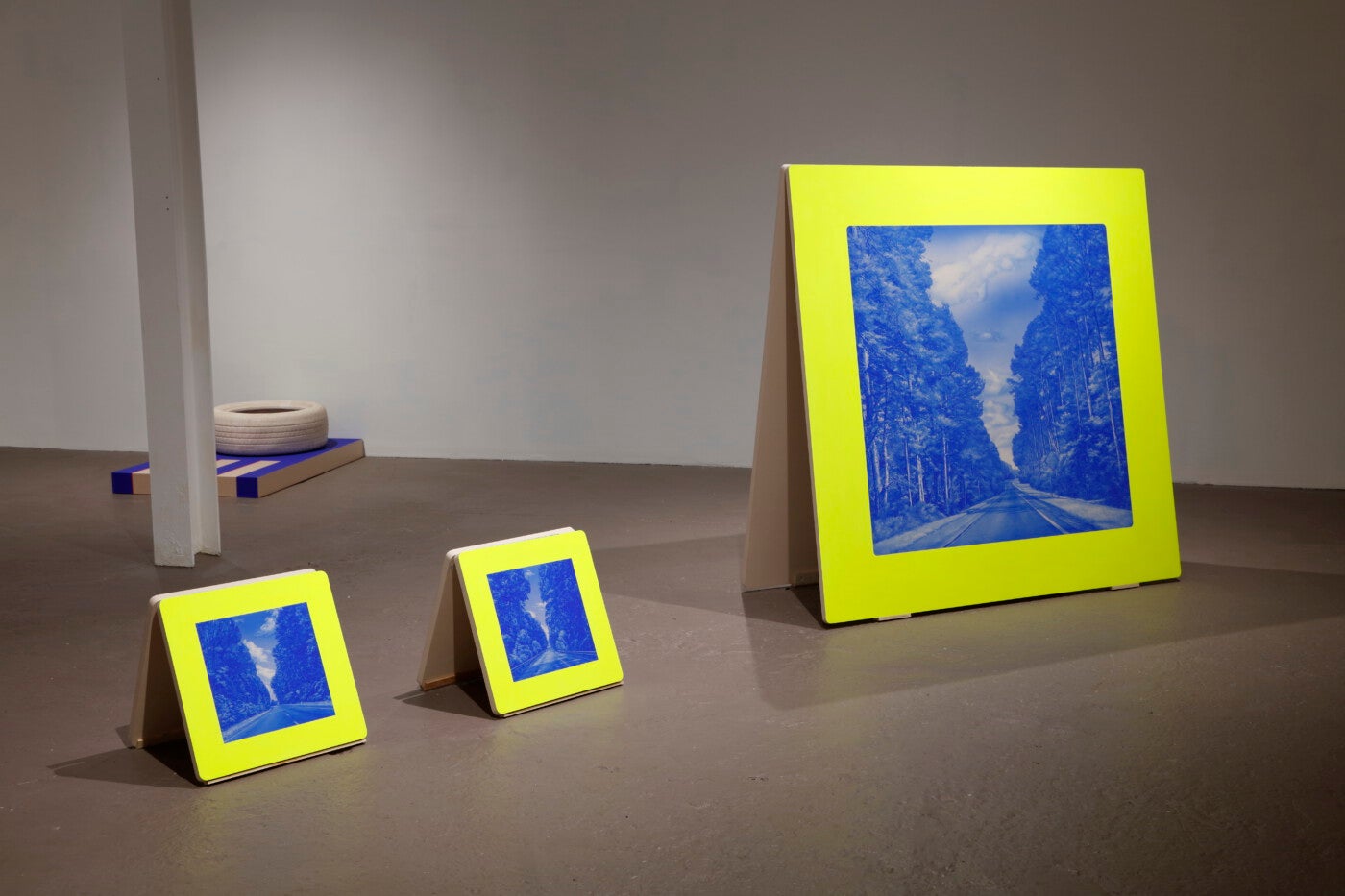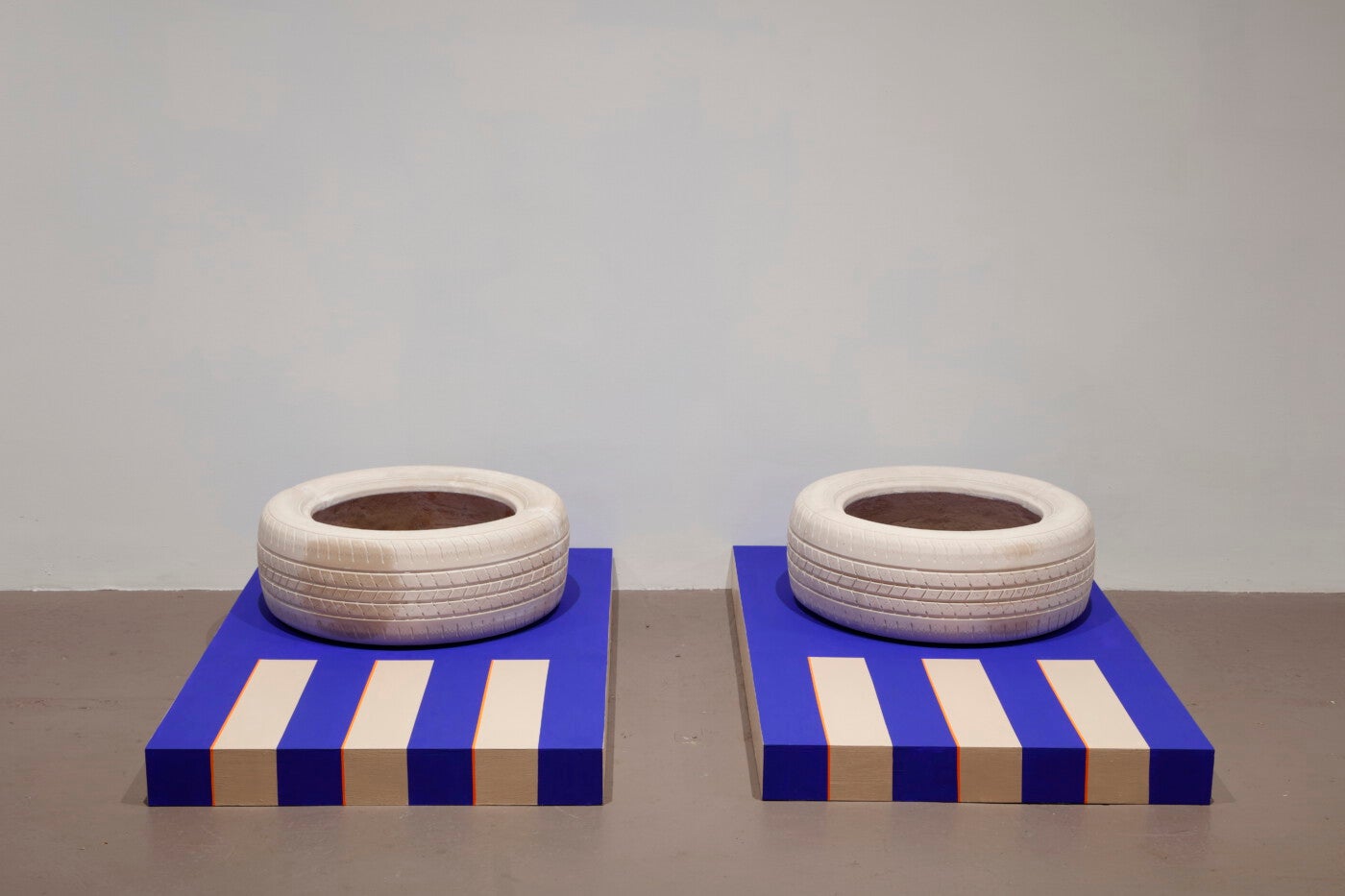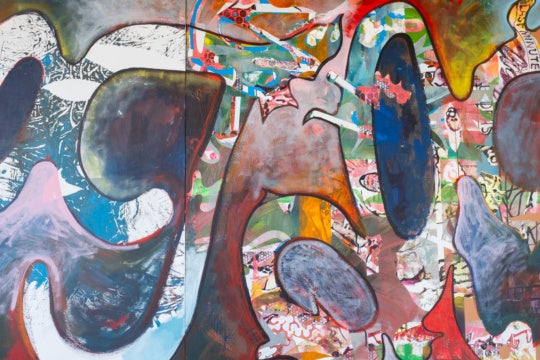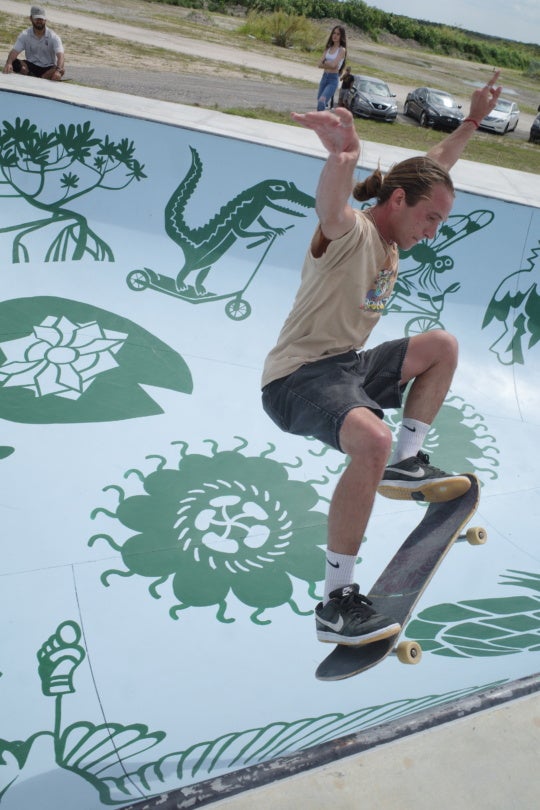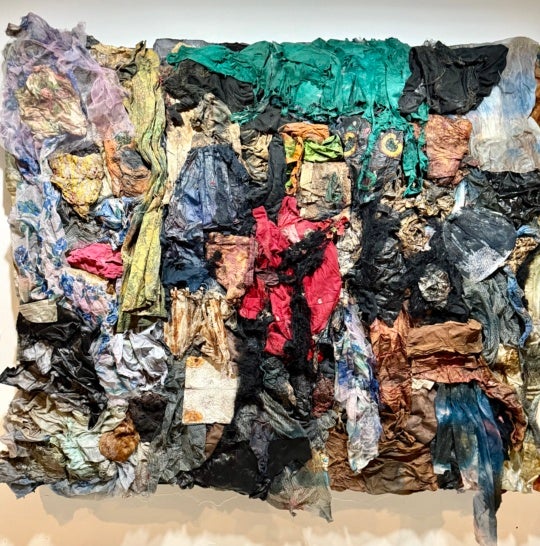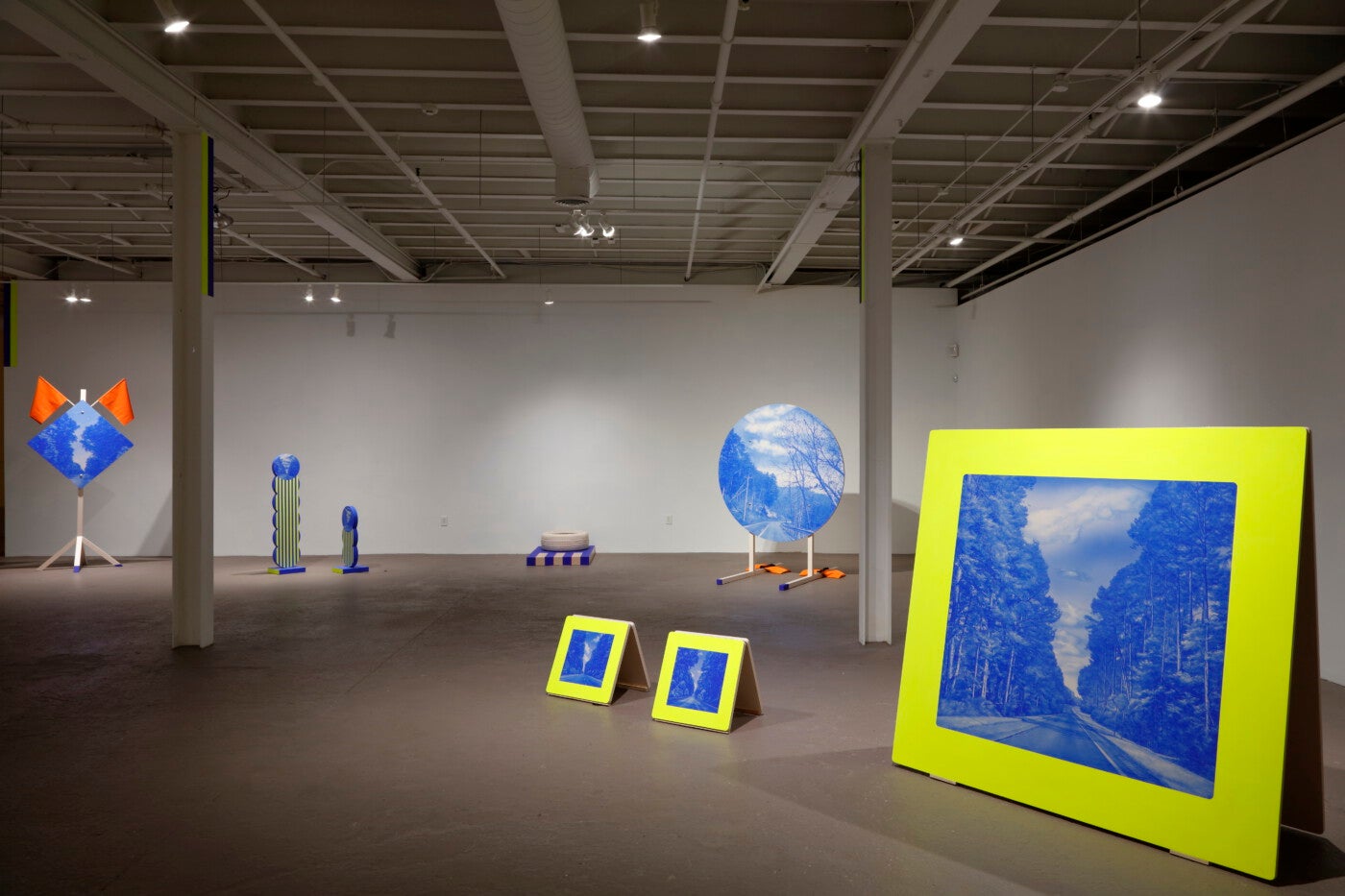
Namwon Choi: 248 Miles at the Museum of Contemporary Art of Georgia employs hyperrealism, extreme pigmentation, and road trip signifiers to build an unconventional family portrait. The title refers to the 248-mile drive between Savannah and Marietta, GA, which was the distance that artist Namwon Choi and her children traversed in order to visit one another every other week over the course of nine years. The visual references to highway road signs and dashboard POVs are instantly recognizable and universal to the experience of driving in America; in the context of 248 Miles, the references are personal to Choi. The work speaks to the effort of maintaining long-distance connections. Throughout the exhibition, the relationship between parent and child through the lens of a road trip is communicated through structure, installation design, and visual cues.
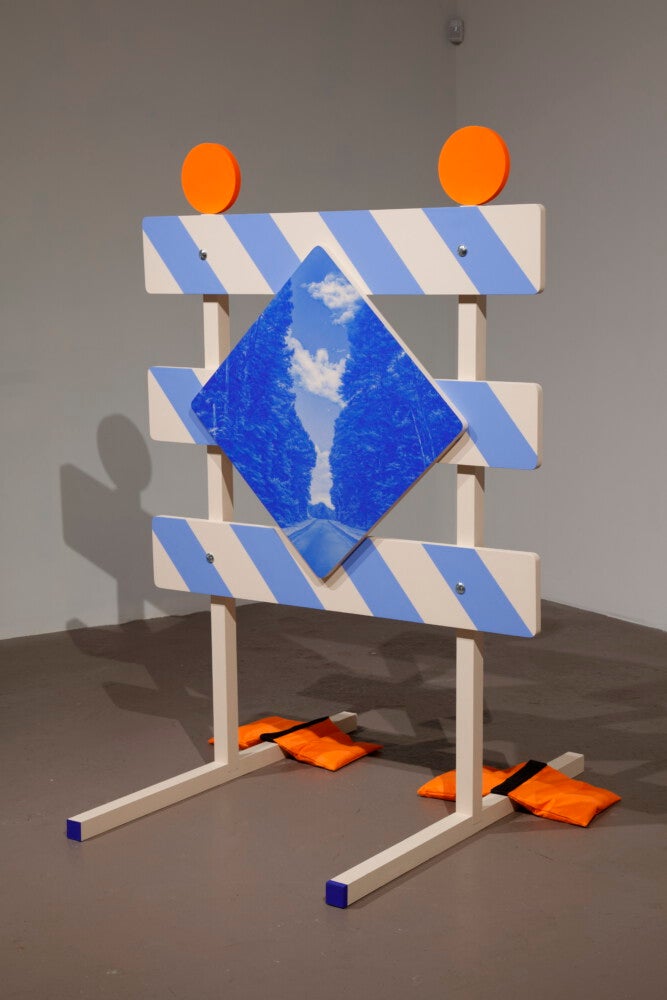
Choi’s signature hyperrealist, hyperpigmented blue paintings created from iPhone dashboard photos are displayed using a variety of familiar signage structures. None of the work is presented on the wall, rather, they exist 3-dimensionally, and in doing so blur the line between painting and sculpture in order to create an immersive experience. In 248 Miles (Full Barricade) (2024) and 248 Miles (Half Barricade) (2024), the blue highway paintings are displayed against the recognizable shape of a highway barricade. The detailed scene combined with the hulking barricade structure creates a contradiction in both scale and connotation. The painting, a moment in action, beckons the viewer onward along the highway, while the barricade creates a kind of visual alarm bell, signaling a potential stop or danger ahead. Additionally, in 248 Miles (Three Circles 1) (2024) and 248 Miles (Six Circles 1) (2024), the stacked circles reference the shape of a stoplight, while also alluding—in a nod to Choi’s Korean heritage—to the Korean idea of circles as symbolic of heaven. In both cases, a directive—stop, go, wait, and, perhaps, ascension—is implied.
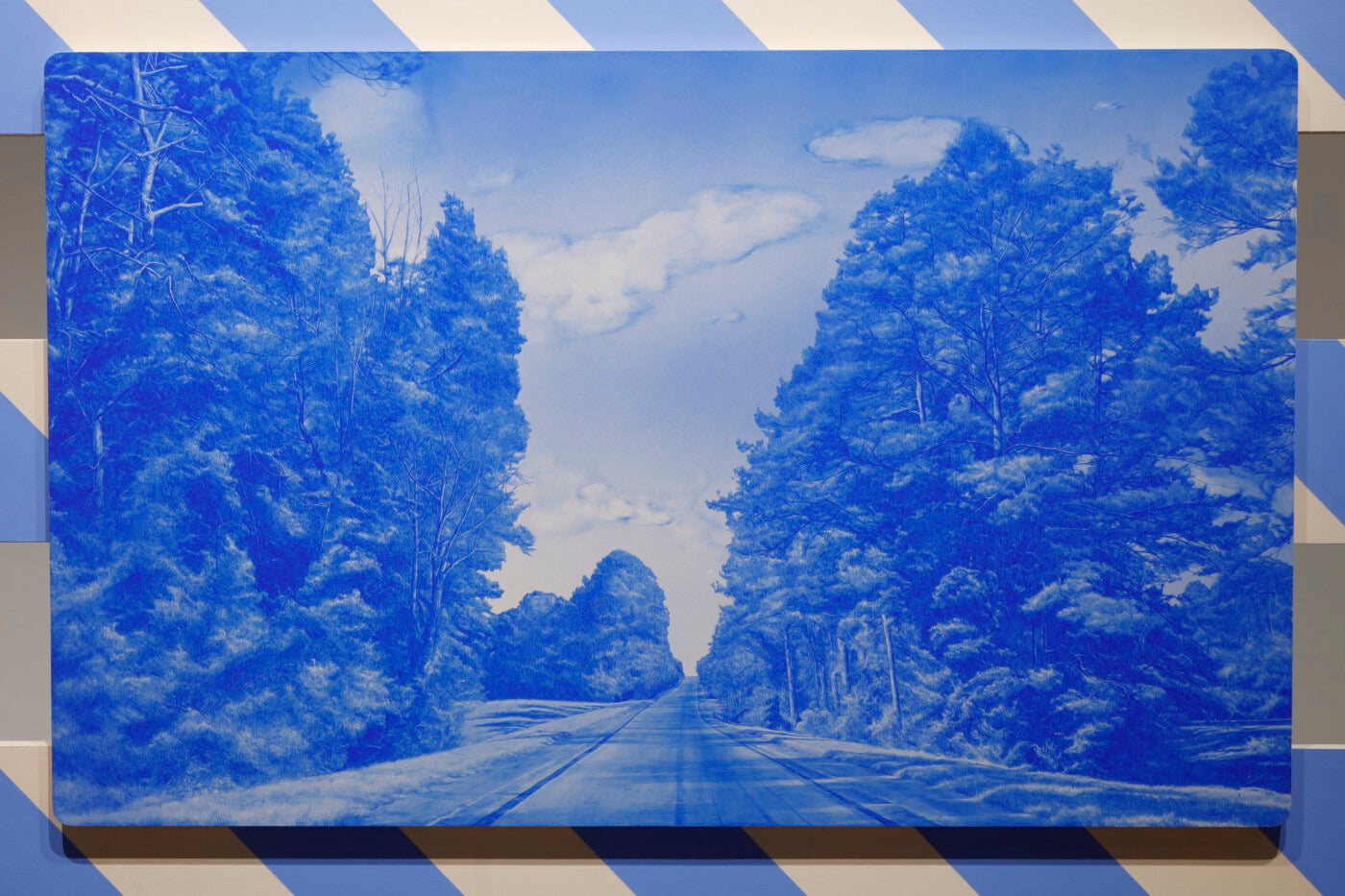
In these circle and barricade paintings, the “portrait” element of Choi’s work is evidenced in part by differences in scale. One work larger, the other smaller, parent and child locked in together on the same journey. Another series can be read as a trio, one work much larger than the other two—248 Miles (Mom) (2024), 248 Miles (Haley) (2024), and 248 Miles (Esoo) (2024), which reference Choi and her two children. While every work in the exhibition—all of which were created in the last year—is certainly unique, they have repeating structures (circle, square, barricade) and colors (the ultramarine blue, the fluorescent yellow), uniting them as a tight, cohesive unite. Positioned as stand-alone sculptures, they take on an animated quality, as though they were beings in the room. Sitting on the floor among the erect hyperrealist paintings are cast fiberglass tires with resin and marble dust, which rest upon painted wooden platforms. 248 Miles (Tire 3) (2024) and 248 Miles (Tire 4) (2024), are casts of the actual tires that Choi wore out on her road trips to visit her family, and act as both monument and trophy to the journey.
Throughout Choi’s work in the exhibition, the contradictions—the minimalist paintings and the maximalist structures; the welcoming view of the road ahead and the visual cue to slow down; the curated togetherness of the works and the subject matter of long distance—encourage a heightened awareness of one’s surroundings. Choi is advocating for a refusal of the autopilot, and through this, a gentle but intentional appreciation emerges from the understated love and sacrifice behind a common but significant act: driving to see a loved one.
